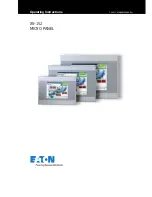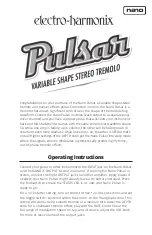
SINCE 1981
11
PLATE AND FrAME - HEAT ExCHANgErS
Check that the operating pressures and temperatures do not exceed those stated on
the heat exchanger nameplate.
Check that all tightening bolts are properly tightened.
Be certain the plate pack tightening dimension ( “T” ) matches the nameplate or
assembly drawing before pressurizing the heat exchanger.
4.0 Operation
4.1 general
The lower pressure and temperature operating fluid side should always be introduced
first to the heat exchanger during start up;
1) Totally shut off the valve located between the pump and the heat exchanger inlet.
2) Open fully the valve located at the outlet connection.
3) Open the vent valve.
4) Start the pump.
5) Open the valve between the pump and the inlet to the heat exchanger very slowly!
6) When all the air is bled from the system close the vent valve
7) Repeat steps 1 through 6 for the other fluid side.
When using steam in the heat exchanger there are special considerations to follow;
• Never have the steam side on with the liquid / cold side turned off.
• Steam inlet shall always be a top connection with an outlet condensate drain at the bottom.
• Steam must always be turned on second and shut off first
• The steam valves must open gradually to avoid damaging the plates.
• Bring steam side up to design conditions slowly by controlled throttling of the
cold side fluid to prevent shocking the heat exchanger.
4.2 Starting up













































